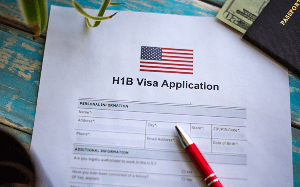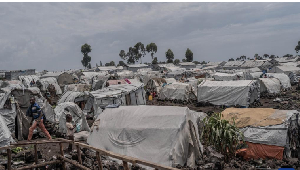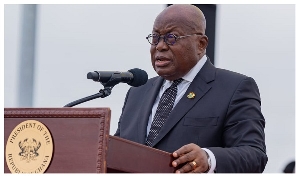- Home - News
- TWI News | TV
- Polls
- Year In Review
- News Archive
- Crime & Punishment
- Politics
- Regional
- Editorial
- Health
- Ghanaians Abroad
- Tabloid
- Africa
- Religion
- Election 2020
- Coronavirus
- News Videos | TV
- Photo Archives
- News Headlines
- Press Release
General News of Sunday, 9 February 2003
Source: Boston Globe Newspaper
A drinking water crisis divides Ghana
Privatization seen shutting out poor
ACCRA, Ghana - Standing in his tiny general store, Reuben Keh vented frustration about the price of water - a necessity that most people here can barely afford.
Keh makes the equivalent of about $2.50 a day and is struggling to provide for his wife and three children. His biggest expense is water, on which he spends a quarter of his income.
''Life is difficult,'' he said, as he watched women prepare kenke, a local fare of fermented corn paste. ''We are suffering here.''
Keh is one of millions of Ghanaians struggling to afford clean water, and a plan by the government to privatize water distribution has many worried that the crisis will worsen.
The fear is that private companies will drive up already high prices to make a profit - a disaster for the 78 percent of the urban poor who do not have regular access to piped water.
The concern cuts across much of West Africa. At the heart of the issue: Who should be in charge of distributing, and how much should it cost?
Privatizing water is the popular choice in this region, analysts say, largely because of pressure from the International Monetary Fund and the World Bank. Proponents say it is the only way to fix the inefficient public systems.
The trend in West Africa, indeed, is toward privatization. Until 1997, only a few privatized water services existed in Africa, mainly in French-speaking countries, which had granted water contracts to French companies. But in 1999 and 2000, the number of proposed privatizations rose dramatically, often because the World Bank and IMF released loans on that condition.
''It's a business of making profits, not to give people some life,'' said Al-Hassan Adam, the regional coordinator for National Coalition Against the Privatization of Water in Accra, Ghana's capital. ''If private companies come in now and raise tariffs, there will be war.''
Many in this country of 20 million rely on ''water tankers'' run by deliverers such as Francis Kwesi. The 24-year old sits on his tanker, waiting for just a few customers. He's one of thousands of water haulers in Ghana, but he said suppliers have raised prices and he's facing a tough decision.
''If you raise your price, customers will tell you no, they won't buy water from you. You are standing there from morning until evening, and you will not move,'' he said, as fellow drivers nodded in agreement.
''It's very hard for a young boy like me to get my daily bread,'' Kwesi said, adding that it's difficult to make more than $1 a day.
David Henley, who works on water issues in Africa for the World Bank, said privatization has led to major efficiency improvements in Ivory Coast, Senegal, Niger, Chad, and Gabon. In Ghana, he said, ''more than 50 percent of their water, they don't know what happens to it.''
Analysts of water supply, however, say that while some countries have benefited from privatization, most such efforts are plagued with problems.
''What tends to happen is that companies have to put up prices to cover expenses,'' said David Hall, director of the Public Services International Research Unit at the University of Greenwich in England, who has studied water privatization in Africa.
In one research unit report, executives from Vivendi, the French conglomerate, said private firms are able to invest in water in Africa if the risks are ''fairly apportioned'' and if the firm is able to reap a fair profit. One of the sticking points for private firms: how to cover costs and make a profit without gouging the poor.
Studies by the Public Services International Research Unit, a research organization at the University of Greenwich outside central London, show that results of water privatization throughout West Africa have been mixed:
In Guinea, water quality improved and the number of customers with water meters went from 5 percent to 90 percent, but prices increased dramatically.
In parts of South Africa, cholera broke out in several regions when people, unable to pay for the private water, were forced to use local public supplies.
In Zimbabwe, the British company Biwater pulled out in 1999 after it realized consumers could not pay.
Peter Gleick, director of the Pacific Institute in California, which studies global water issues, said privatization rarely helps the poorest populations.
''Governments can, as a part of privatization, require that the poorest populations receive water for free or subsidized, but they rarely do,'' Gleick said. ''Privatization may bring some benefits, and many governments in Africa have not adequately provided water services for their people, but pushing water privatization without a set of consistent standards and principles may well worsen, not improve, these problems.''
In the village of Adenta, just outside the capital, most people haven't heard of the World Bank, but they know all too well the sting of water prices. Women carry huge tubs of water on their heads en route to their houses, pausing to give Bamba, a toothless man who owns the well, about 7 cents to 9 cents per tubful.
Some families spend as much as 20 percent of their average daily income on water. In the United States, by contrast, a minimum-wage worker who makes just over $1,000 a month might expect to pay $10 to $20 a month, or about 2 percent of his or her gross wages, according to a team of international experts who studied Ghana's water problems last year.
T. T. Tettey is one of only a few villagers with a tap in his home, but it works only once a week for three hours - enough to partially fill his well. He sells water for about 5 cents a bucket. He voices concern that, if a private company takes over the system, he will be forced to pass on the cost to consumers.
''A lot of people won't be able to pay,'' if privatization happens, Tettey said. ''Sometimes the poor people come and can't afford water. Any amount they give me, I give them water. ... Eventually, I'll be the loser.''
This story ran on page A14 of the Boston Globe on 2/9/2003.










